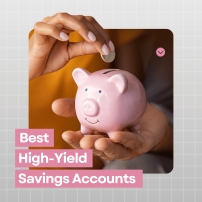Complete guide to choosing the ideal credit card

Advertisements
Choosing the right credit card can feel overwhelming, especially when there are so many options available in the market.
With a plethora of features, benefits, fees, and rewards programs, making an informed decision is crucial to maximize your financial well-being.
Understanding Credit Cards and Their Benefits
Before diving into the details of choosing a credit card, it’s important to understand what a credit card is and why it’s an essential financial tool.
Credit cards allow you to borrow money from a financial institution to make purchases, pay bills, or even build your credit score.
They provide a convenient and secure method of payment, and when used responsibly, they offer several benefits:
- Convenience: Carrying a credit card is easier than managing cash or checks.
- Rewards: Many credit cards offer rewards such as cash back, points, or miles for every dollar spent.
- Building Credit: Timely payments help build and improve your credit history.
- Purchase Protection: Many cards provide protection against fraud and offer extended warranties or insurance on purchases.
Understanding these benefits is the first step towards making a well-informed decision.
Assessing Your Financial Situation
Before choosing a credit card, assess your personal financial situation.
This evaluation involves examining your income, credit score, spending habits, and long-term financial goals.
Consider the following steps:
- Check Your Credit Score: Your credit score is a critical factor in determining which credit cards you’re eligible for. A higher credit score generally opens up more premium card options with better rewards.
- Analyze Your Spending Patterns: Identify the categories where you spend the most, such as groceries, dining, travel, or entertainment. This will help you select a credit card that offers maximum rewards in those areas.
- Set Financial Goals: Decide whether you need a credit card for everyday expenses, building credit history, or for enjoying exclusive benefits like travel rewards or cash back offers.
- Budgeting and Debt Management: Understand your ability to pay off your balance each month. If you plan to carry a balance, look for cards with lower interest rates.
A clear picture of your financial health and goals will serve as a guide when evaluating the various credit card options available.
Types of Credit Cards
There are several types of credit cards on the market, each designed to cater to different needs.
Here are some of the most common types:
Rewards Credit Cards
Rewards credit cards offer incentives for every dollar spent. These rewards may come in the form of cash back, points, or airline miles.
They are ideal if you pay your balance in full every month, as the benefits often outweigh the cost.
When evaluating rewards cards, consider the following:
- Sign-Up Bonuses: Many cards offer attractive sign-up bonuses if you meet the spending requirements within the first few months.
- Rewards Structure: Some cards offer a flat rate on all purchases, while others provide enhanced rewards in specific categories such as dining or travel.
- Redemption Options: Check how easily you can redeem your rewards. Look for flexibility and the value of each point or mile.
Low Interest and Balance Transfer Cards
If you tend to carry a balance, a low interest or balance transfer card might be the better option. These cards typically offer:
- Lower APR: A reduced annual percentage rate (APR) minimizes interest costs.
- Introductory Offers: Many cards offer an introductory 0% APR period on purchases or balance transfers, giving you time to pay off your balance without accruing interest.
- Balance Transfer Fees: Evaluate any fees associated with transferring balances from another card.
Secured Credit Cards
For those looking to build or rebuild their credit score, a secured credit card is a great starting point.
These cards require a security deposit that serves as your credit limit.
Key points include:
- Building Credit: Timely payments on a secured card help improve your credit history.
- Upgrade Opportunities: Many banks allow you to upgrade to an unsecured card after a period of responsible use.
- Lower Credit Requirements: Secured credit cards are more accessible if you have a low or no credit score.
Travel Credit Cards
For frequent travelers, travel credit cards offer specialized benefits that can enhance your travel experience.
Consider the following:
- Airline Miles and Hotel Rewards: Earn points or miles that can be redeemed for flights, hotel stays, and other travel-related expenses.
- Travel Perks: Many travel cards come with benefits like airport lounge access, priority boarding, and travel insurance.
- Foreign Transaction Fees: Choose a card that minimizes or eliminates fees for international purchases.
Key Factors to Consider When Choosing a Credit Card
When selecting the ideal credit card, consider the following key factors to ensure it aligns with your financial needs and lifestyle:
Annual Fees
Some credit cards charge an annual fee in exchange for premium benefits.
While cards with annual fees often offer superior rewards and features, it’s important to calculate whether the rewards you earn will offset the fee.
Compare:
- No-Fee Cards: Suitable for those who prefer to avoid yearly charges.
- Premium Cards: Offer enhanced rewards, travel perks, and exclusive benefits that might justify the annual fee.
Interest Rates
The interest rate or APR is critical if you’re likely to carry a balance. Look for cards that offer competitive rates, and be aware of:
- Introductory APR Offers: Temporary rates that are lower for a specified period.
- Standard APR: The rate that applies after the introductory period ends.
- Penalty APR: Higher rates that might be applied if you miss payments.
Rewards and Benefits
The rewards structure is one of the most appealing features of many credit cards. Evaluate:
- Cash Back vs. Points/Miles: Determine which rewards type aligns best with your spending habits.
- Bonus Categories: Some cards offer extra rewards in specific areas like groceries, dining, or gas.
- Redemption Flexibility: Ensure you can easily redeem your rewards for items that matter to you, whether that’s travel, gift cards, or statement credits.
Credit Limit
The credit limit determines how much you can spend on your credit card. Factors to consider include:
- Your Income and Credit Score: These factors usually influence your credit limit.
- Spending Needs: Choose a card that offers a credit limit that aligns with your typical spending without risking overspending.
- Flexibility: Some cards allow you to request a credit limit increase after a period of responsible use.
How to Compare Credit Card Offers
With so many options available, comparing credit card offers is essential.
Here are some tips to help you make the right choice:
- Create a Checklist: List the factors that are most important to you, such as rewards, fees, APR, and additional benefits.
- Use Online Comparison Tools: Websites and tools dedicated to comparing credit cards can save you time and help you narrow down your choices.
- Read the Fine Print: Always go through the terms and conditions to understand all the fees and requirements.
- Consider Reviews and Ratings: User reviews and expert ratings can provide insights into customer service, usability, and real-world benefits.
- Consult Financial Advisors: If you’re unsure about which credit card suits your financial situation, seek advice from financial professionals.
Conclusion
In this complete guide, we have explored the crucial aspects of choosing a credit card: from understanding the different types available to analyzing fees, interest rates, and benefits, and finally, offering practical tips to maximize your credit card usage.
With this knowledge in hand, you are well-equipped to navigate the often complex landscape of credit cards and secure an option that truly works in your favor.
Related content

Best Personal Loan Platforms in the US (2025 Edition): SoFi, Upstart, Marcus & More

Best High-Yield Savings Accounts in the US in 2025

Best Credit Cards with No Foreign Transaction Fees: Ideal for Frequent Travelers

The Credit Card Churning Phenomenon in the US: Is It Legal? Is It Worth It? What Are the Risks?

The Complete Beginner’s Guide: How to Use Your First Credit Card in the US Responsibly
